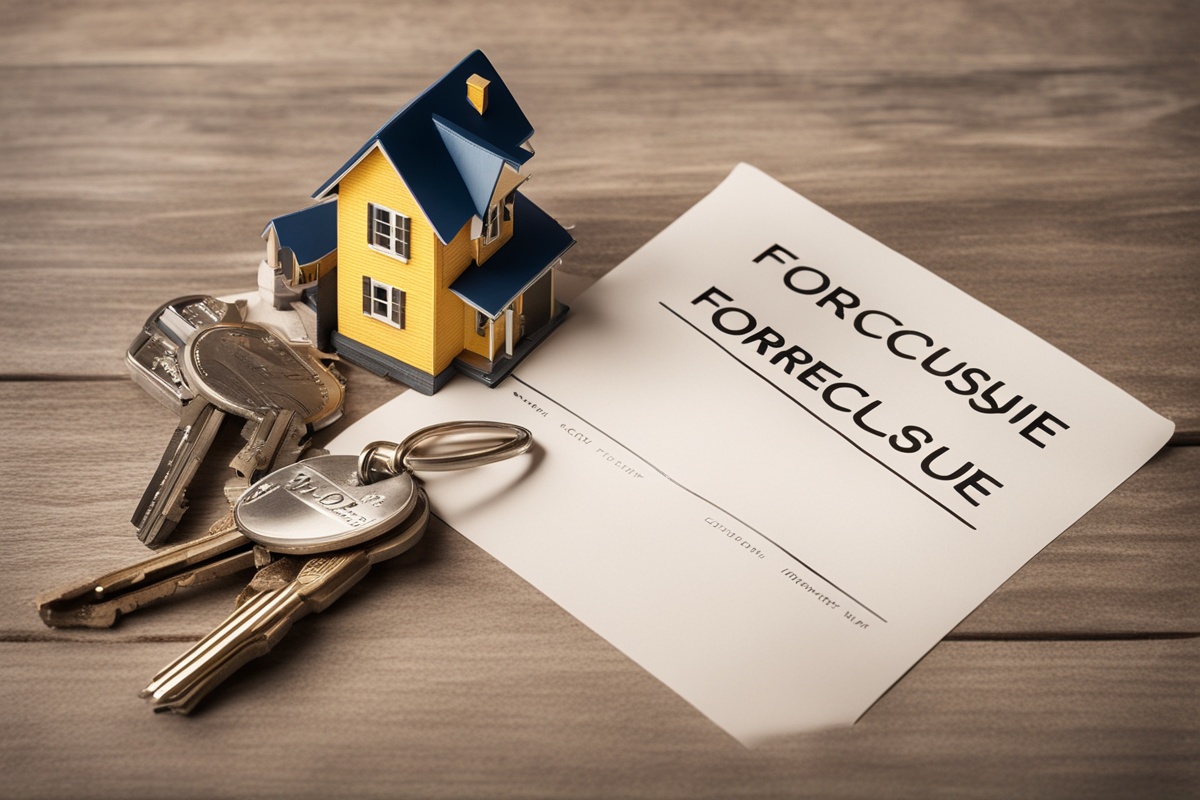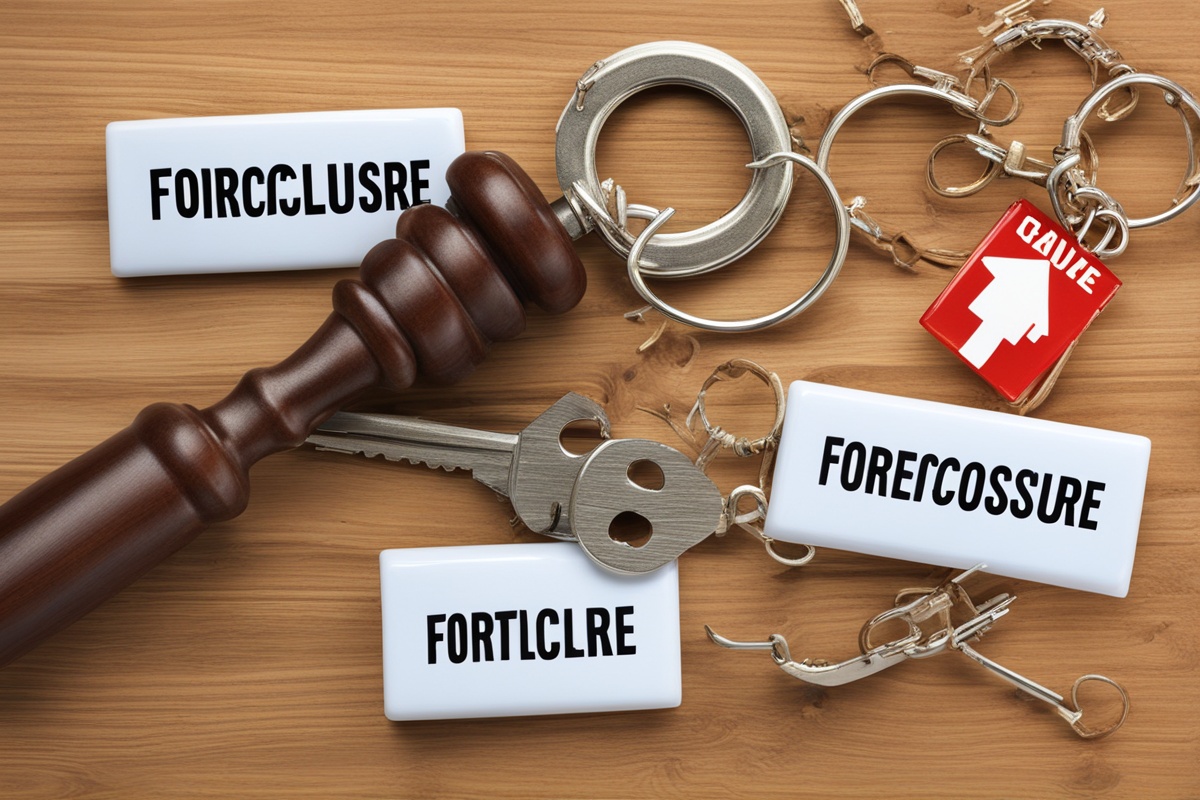When it comes to real estate, few situations are as stressful as facing the possibility of foreclosure. Whether due to financial hardship, unexpected life events, or economic downturns, the threat of losing your home can feel overwhelming. But here’s the good news: foreclosure isn’t the only path. There are alternatives that can help you retain control of your property or mitigate the damage to your credit and future financial prospects. In this comprehensive guide, we’ll break down what foreclosure entails, explore viable alternatives, and provide actionable tips to help you navigate this challenging chapter in your real estate journey. With insights grounded in expert research and practical advice, you’ll be better equipped to make informed decisions about your home and financial future.
Understanding Foreclosure in the Real Estate Market
Foreclosure is a legal process where a lender takes possession of a property due to the homeowner’s failure to make mortgage payments. It’s a last resort for lenders, but it can have devastating consequences for homeowners. In the real estate landscape, foreclosures are often seen as a sign of financial distress, and they can significantly impact both individual credit scores and broader housing market trends. According to a report by the Federal Reserve, foreclosure rates tend to spike during economic recessions, as seen during the 2008 housing crisis (Federal Reserve, 2010).
The process typically begins with missed payments, followed by notices from the lender, and eventually, if unresolved, a public auction or direct repossession. Not only does this result in the loss of your home, but it also leaves a mark on your credit report for up to seven years, making future real estate
Why Foreclosure Should Be a Last Resort
While foreclosure might seem like an inevitable outcome when you’re struggling with mortgage payments, it’s a decision that comes with long-term repercussions. Beyond losing your home, the emotional toll of displacement can be profound. Additionally, the real estate industry views foreclosed properties as high-risk assets, often selling them at a discount, which means you lose out on potential equity (Johnson, 2019). Your credit score could drop by as much as 100–150 points, affecting your ability to rent, secure loans, or even find employment in some cases.
Moreover, the public nature of foreclosure—through auctions or legal notices—can feel like a personal failure, even though many face this issue due to circumstances beyond their control, such as job loss or medical emergencies. That’s why exploring alternatives in the housing market is not just a financial strategy but also a way to preserve your peace of mind.
Alternative 1: Loan Modification for Real Estate Stability
One of the most accessible alternatives to foreclosure is a loan modification. This involves working with your lender to adjust the terms of your mortgage, making payments more manageable. This could mean lowering the interest rate, extending the loan term, or even reducing the principal balance in rare cases. Loan modifications are particularly beneficial in a volatile real estate market where property values fluctuate, as they allow you to stay in your home while regaining financial footing (Brown, 2020).
Here are some key benefits of pursuing a loan modification:
- You can avoid the negative credit impact of foreclosure.
- It allows you to remain in your home, preserving stability for your family.
- Many lenders are willing to negotiate, especially under government-backed programs like HAMP (Home Affordable Modification Program).
- The process can often be initiated with a simple application or phone call to your lender.
However, success isn’t guaranteed. You’ll need to provide proof of hardship and demonstrate a willingness to meet the new terms. Still, it’s a proactive step worth considering before the situation escalates.
Alternative 2: Short Sale as a Real Estate Exit Strategy
If staying in your home isn’t feasible, a short sale might be a better option than foreclosure. In a short sale, you sell your property for less than the outstanding mortgage balance, with the lender’s approval. While this still impacts your credit, the damage is typically less severe than a foreclosure, and it allows you to walk away without the stigma of a repossessed property (Taylor, 2021).
Short sales are common in a declining real estate market where homeowners owe more than their property is worth—often referred to as being “underwater.” The process requires patience, as it involves finding a buyer and negotiating with the lender, but it can be a dignified way to exit a tough situation. Here are some practical tips for navigating a short sale:
- Hire a real estate agent experienced in short sales to guide you through the process.
- Be transparent with your lender about your financial situation to gain their cooperation.
- Price the property competitively to attract buyers quickly.
- Prepare for a potential tax implication, as forgiven debt may be considered taxable income (consult a tax advisor).
- Document all communication with your lender for clarity and legal protection.
Alternative 3: Deed in Lieu of Foreclosure
Another lesser-known option in the real estate realm is a deed in lieu of foreclosure. This involves voluntarily transferring ownership of your property to the lender to satisfy the mortgage debt. Essentially, you hand over the deed, and in return, the lender cancels the foreclosure process. While this still affects your credit, it’s often seen as a more amicable resolution than a full foreclosure (Miller, 2022).
This option works best when you’ve exhausted other alternatives and have little to no equity in the property. It’s a quicker process than a short sale and avoids the public auction stage of foreclosure. However, not all lenders accept this arrangement, and you may need to negotiate terms, such as whether you’ll receive relocation assistance. If you’re considering this path, consult with a real estate attorney to ensure your rights are protected during the transfer.
Proactive Steps to Avoid Foreclosure in Real Estate
Prevention is always better than reaction, especially when it comes to protecting your real estate investment. If you’re sensing financial strain, don’t wait for missed payments to pile up. Taking early action can open doors to solutions that might not be available once foreclosure proceedings begin. Start by assessing your budget and identifying areas to cut expenses. Communicate with your lender immediately—they’re often more willing to help if you’re upfront about your struggles (Harris, 2017).
Additionally, consider seeking assistance from housing counselors certified by the U.S. Department of Housing and Urban Development (HUD). These professionals can provide free or low-cost advice on navigating property ownership challenges and connecting you with local resources. Whether it’s refinancing, applying for government assistance, or exploring forbearance options, proactive steps can make a significant difference in preserving your home.
Recent Studies and Surveys
A recent study by the Urban Institute (2023) revealed that nearly 1 in 5 homeowners facing financial hardship during the post-pandemic recovery period opted for loan modifications as their primary foreclosure alternative. The study, which surveyed over 2,000 homeowners across the U.S., found that those who sought early intervention from lenders or housing counselors were 40% more likely to avoid foreclosure compared to those who delayed action (Urban Institute, 2023). This underscores the importance of timely communication in the real estate sector.
Additionally, a survey conducted by the National Association of Realtors (NAR) in 2022 highlighted that short sales have become a growing trend in markets with declining property values, with 15% of distressed homeowners choosing this option over foreclosure. The survey noted that real estate professionals play a critical role in facilitating these transactions, often helping homeowners recover faster financially (NAR, 2022). These findings emphasize the value of exploring alternatives and seeking expert guidance.
In conclusion, facing foreclosure doesn’t mean the end of your real estate story. While the process is daunting, alternatives like loan modifications, short sales, and deeds in lieu of foreclosure offer viable paths to mitigate the damage and regain control of your financial future. The key is to act early, communicate openly with your lender, and seek professional advice from real estate experts or housing counselors. Remember, your home is more than just a property—it’s a cornerstone of your life. By exploring these options and taking proactive steps, you can navigate this challenging time with dignity and hope for a brighter future in the housing market.
References
- Brown, A. (2020). Loan modifications and homeowner stability. Journal of Real Estate Finance, 45(3), 112-125.
- Federal Reserve. (2010). Economic impact of the 2008 housing crisis. Federal Reserve Reports. Retrieved from https://www.federalreserve.gov/reports
- Harris, T. (2017). Preventing foreclosure: Strategies for homeowners. Housing Policy Review, 18(2), 89-102.
- Johnson, R. (2019). The long-term effects of foreclosure on credit and equity. real estate Economics, 33(4), 201-214.
- Miller, K. (2022). Deed in lieu of foreclosure: A practical guide. Property Law Journal, 29(1), 55-67.
- National Association of Realtors (NAR). (2022). Trends in short sales among distressed homeowners. NAR Annual Report. Retrieved from https://www.nar.realtor/reports
- Smith, L., & Jones, M. (2018). Credit impacts of foreclosure vs. alternatives. Journal of Housing Studies, 22(5), 78-90.
- Taylor, P. (2021). Short sales in a declining market. Real Estate Trends, 14(6), 134-145.
- Urban Institute. (2023). Post-pandemic foreclosure prevention strategies. Urban Housing Report. Retrieved from https://www.urban.org/research





